Symptoms of Pregnancy What Happens First
Pregnancy is a remarkable journey that begins with subtle changes in your body. Recognizing these early signs and symptoms of pregnancy can help you confirm your condition and take steps to support your health. A missed period is a common sign of pregnancy. However, pregnancy symptoms include many physical and emotional changes. These changes are caused by hormonal shifts. Here’s an in-depth look at the first signs of pregnancy and what they mean during the initial weeks of pregnancy.
Missed Period: A Common Symptom of Pregnancy
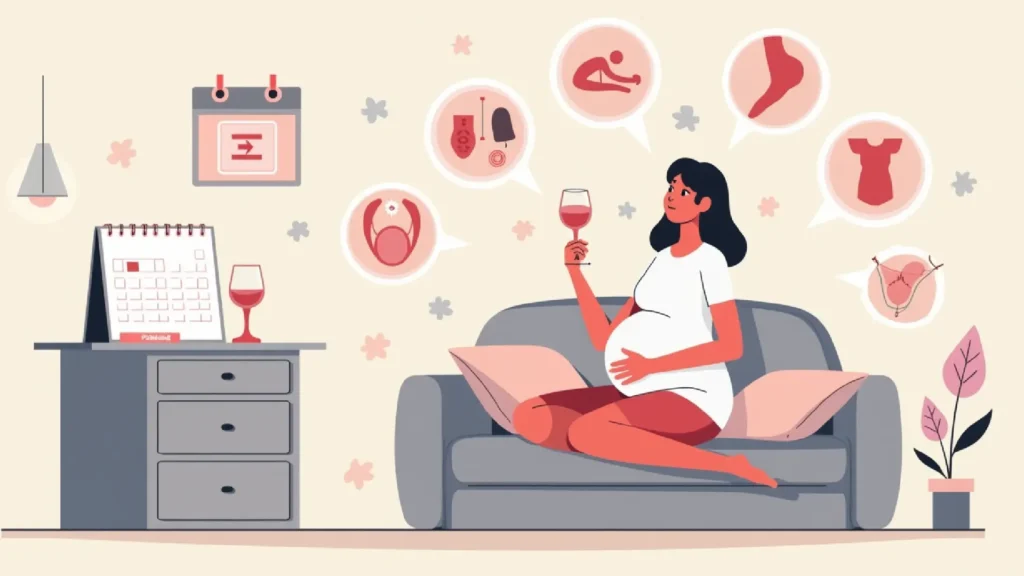
The most well-known and often the first symptom of pregnancy is a missed period. For women with regular menstrual cycles, this is usually the earliest clue. However, for those with an irregular menstrual cycle, this sign may be less obvious, and other symptoms of pregnancy include those that are equally significant in confirming your condition.
1.Tender and Swollen Breasts
One of the first physical changes many women notice is tender, swollen breasts. This symptom is caused by high levels of the hormone progesterone and other hormonal changes that prepare the body for breastfeeding. As your body adjusts to these changes, the discomfort often decreases after the first trimester.
2. Morning Sickness and Nausea
Morning sickness, a hallmark of early pregnancy, involves nausea that can occur at any time of the day or night. This symptom typically starts within the first six weeks of pregnancy and may continue throughout the first trimester. The causes are closely tied to increasing hormone levels, particularly hCG and high levels of the hormone progesterone. Additionally, some women may experience food cravings or aversions as part of this early adjustment.
3. Increased Vaginal Discharge
During the early stage of pregnancy, an increase in vaginal discharge is common. This discharge, which is typically thin, white, and odorless, results from increasing hormone levels that support the health of the vaginal area. This is a natural part of pregnancy that helps prevent infections and maintain the balance of the reproductive system.
Fatigue: A Common Early Symptom
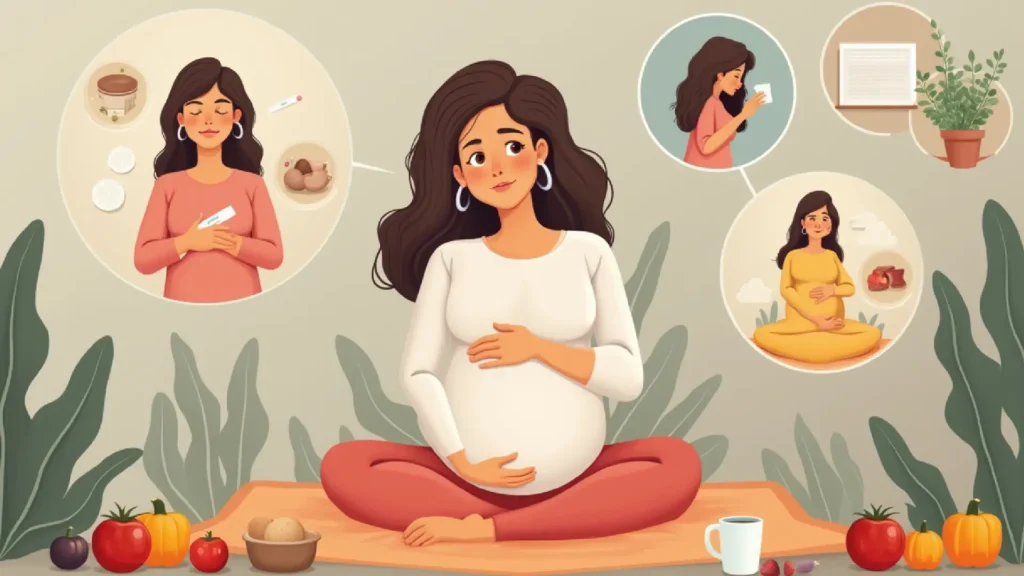
Early Symptom
Extreme tiredness is one of the most prevalent symptoms in the early weeks of pregnancy. High levels of the hormone progesterone cause this fatigue. It can feel overwhelming as your body adjusts to the changes of pregnancy. The increased workload on your body, such as pumping extra blood to support the developing fetus, also contributes to this symptom.
Changes in the Digestive System
Hormonal changes in pregnancy can significantly affect the digestive system, causing symptoms like bloating, constipation, and indigestion. These changes, driven by high levels of the hormone progesterone, slow down digestion to allow for maximum nutrient absorption. While these symptoms can be uncomfortable, they play a crucial role in supporting your baby’s development.
Light Spotting and Cramping
Around 10 to 14 days after conception, some women experience light spotting or implantation bleeding. This occurs when the fertilized egg attaches to the uterine lining and may be accompanied by mild cramping. While these symptoms can be mistaken for the start of a period, they are common signs of early pregnancy.
Food Cravings and Aversions
Another common feature of early pregnancy is a sudden change in your relationship with food. Many women develop food cravings, often for unusual combinations, or experience strong aversions to certain smells and tastes.
These changes are linked to increasing hormone levels and are entirely normal during the early stage of pregnancy.
Nasal Congestion
Pregnancy doesn’t just affect the reproductive system—it can also impact other areas of the body. For instance, hormonal changes can cause the mucous membranes in your nose to swell, leading to nasal congestion. Some women may also experience mild nosebleeds due to increased blood volume during the weeks of pregnancy.
Frequent Urination
One of the first signs many women notice is the need to urinate more frequently. Just a week after conception, your kidneys begin to work harder. They process the extra fluid from increased blood volume. This symptom often continues throughout the pregnancy as the growing uterus puts additional pressure on the bladder.
Mood Swings and Emotional Changes
The emotional changes that occur during the early weeks of pregnancy are another significant symptom. The symptoms of pregnancy include mood swings from hormonal changes. These can make you feel happy one moment and irritable or anxious the next. These shifts are entirely normal and are a sign that your body is adapting to pregnancy.
Prenatal Care: A Crucial Step
If you suspect you are pregnant, confirm it with a pregnancy test and begin prenatal care as soon as possible. Early prenatal care includes regular check-ups, starting prenatal vitamins, and monitoring your symptoms to ensure a healthy pregnancy. Key nutrients such as folic acid and iron play an essential role in supporting your baby’s development during the early stage of pregnancy.
Hormonal Changes During Pregnancy
The changes in the early stage of pregnancy are driven by hormonal shifts. From high levels of the hormone progesterone to increased levels of hCG and estrogen, these hormones prepare your body for the demands of pregnancy. They regulate everything from the digestive system to blood flow, ensuring your baby gets the nutrients they need.
Differentiating Pregnancy Symptoms from Other Conditions
It’s important to remember that many symptoms of pregnancy can be similar to other conditions, like PMS or illness. For instance, fatigue, bloating, and vaginal discharge are common before menstruation or during an infection. If you suspect pregnancy, a pregnancy test or consultation with your healthcare provider is the best way to confirm.
When to Seek Medical Advice
While most early signs and symptoms of pregnancy are normal, certain symptoms warrant immediate medical attention. Severe cramping, heavy bleeding, or sudden high blood pressure could indicate complications that need urgent care. Always consult your healthcare provider if you have concerns.
The symptoms of pregnancy include many physical and emotional changes. These can range from a missed period and vaginal discharge to changes in the digestive system and food cravings. Recognizing these early signs and symptoms helps you take the first steps toward a healthy pregnancy. Start prenatal care early and embrace the incredible journey of motherhood. If you suspect you’re pregnant, confirm with a pregnancy test and consult your healthcare provider to ensure you’re on the right track. Every symptom, no matter how small, is part of the body’s amazing changes in the first weeks of pregnancy.
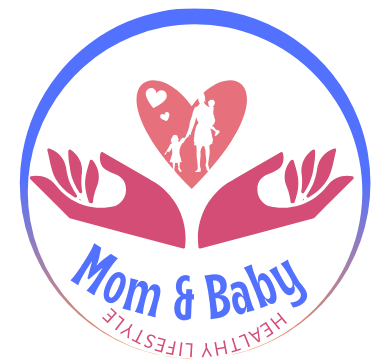
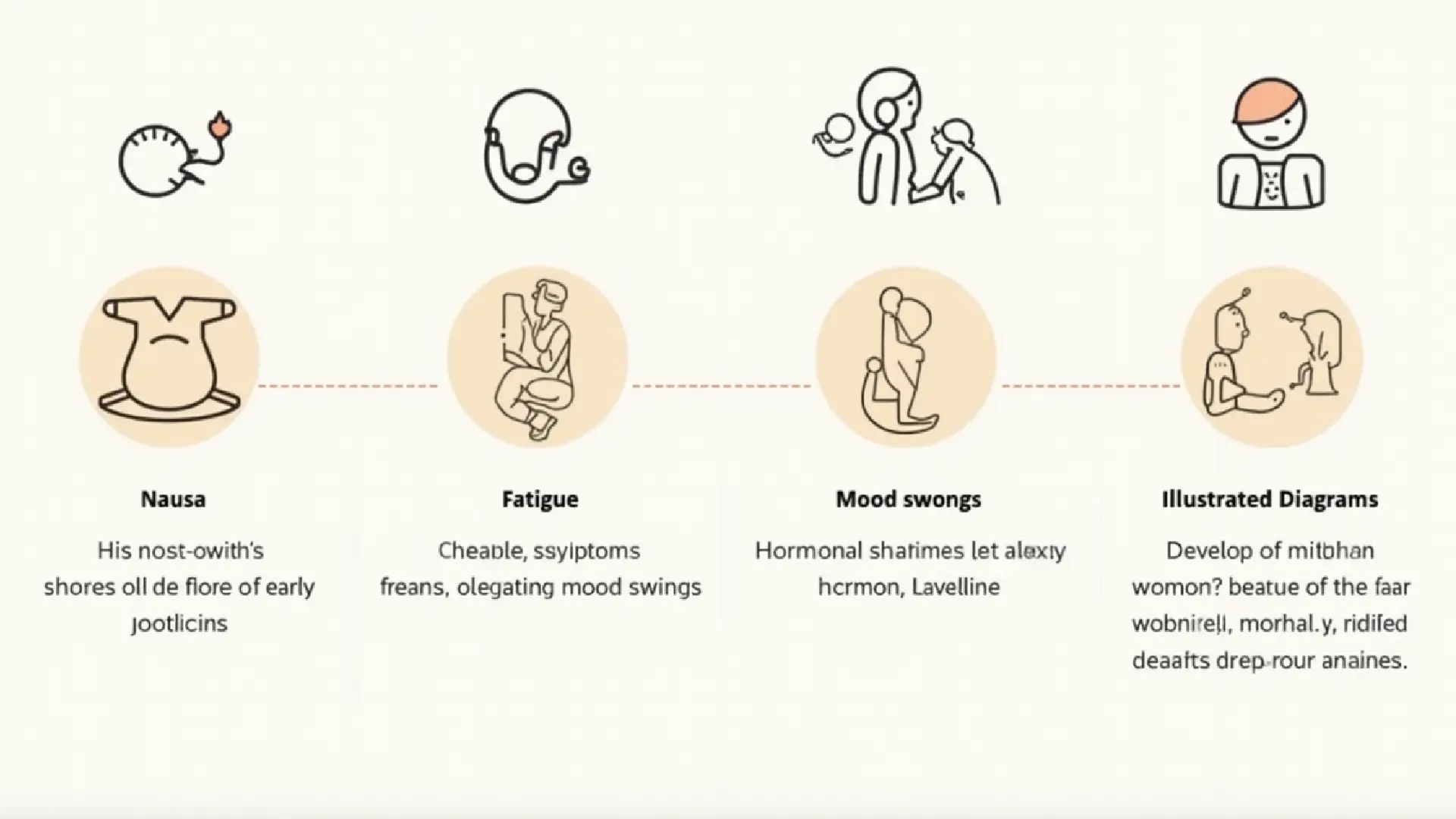
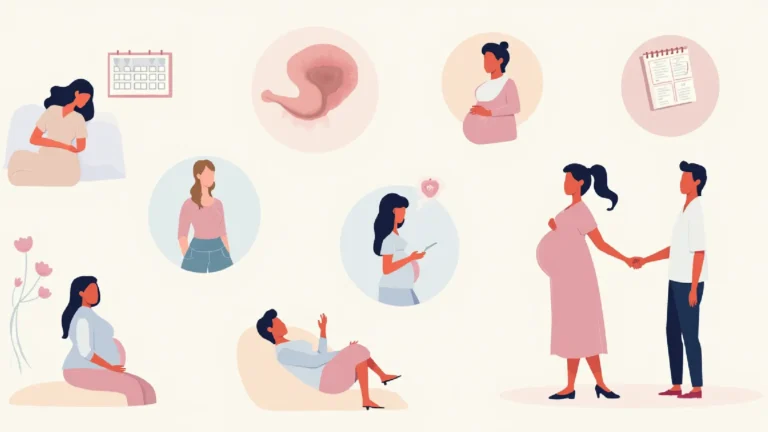
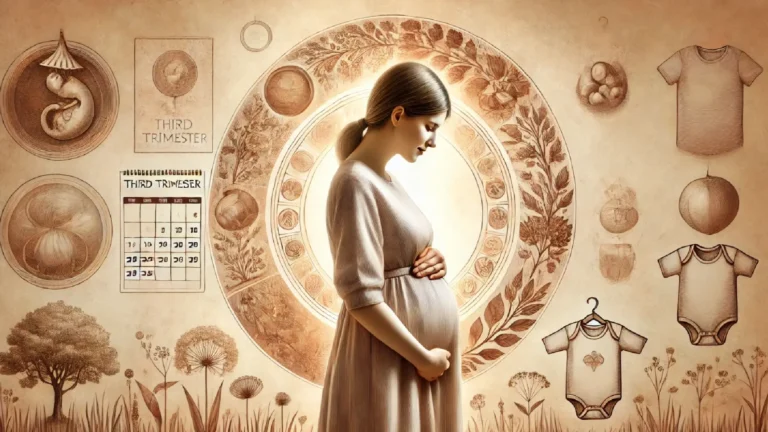
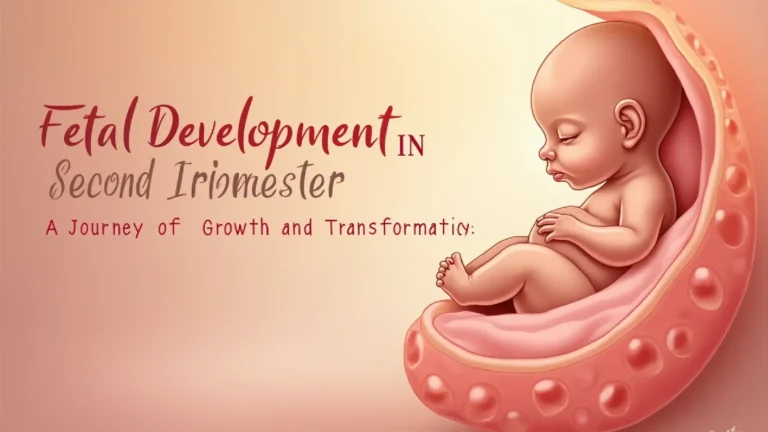
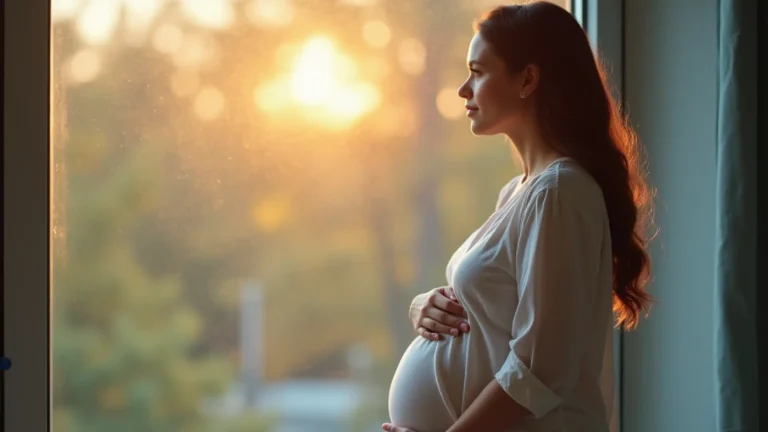
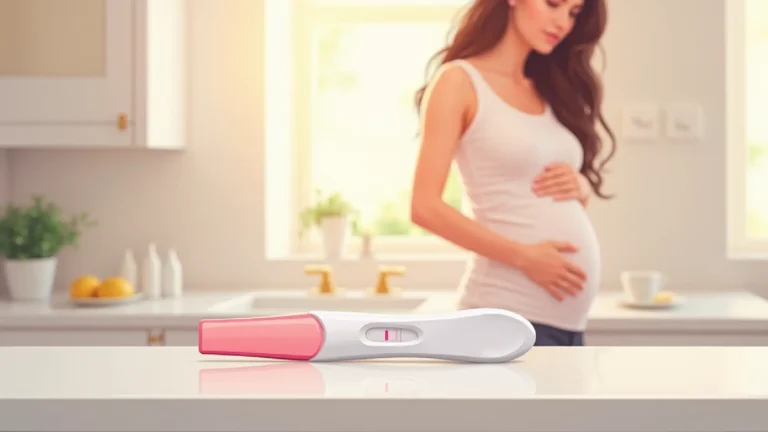
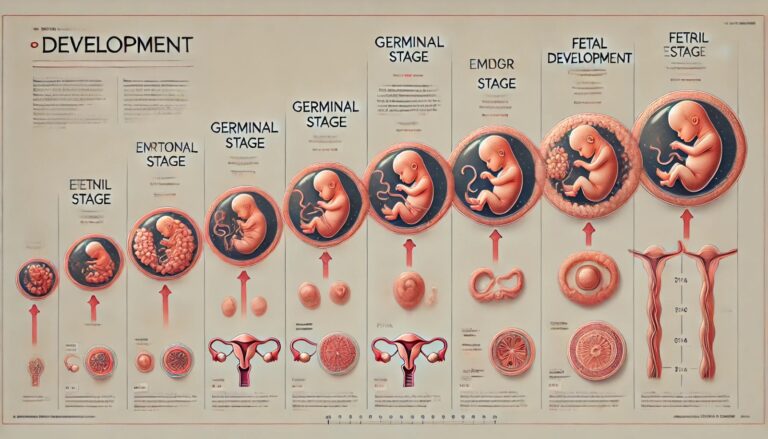
2 Comments